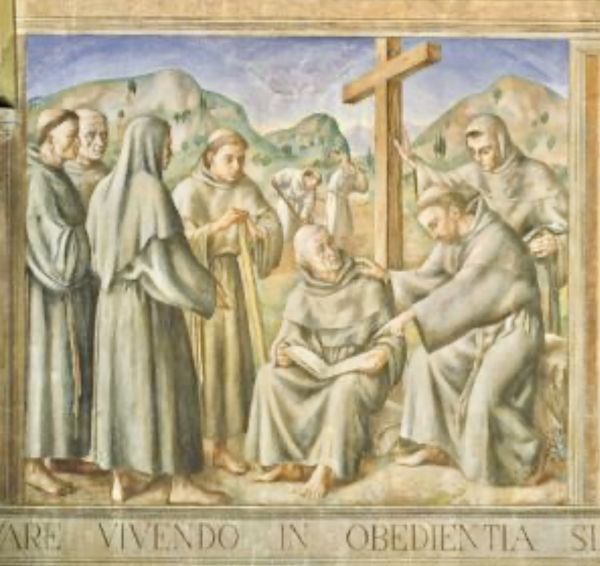Jesus calls for a non-formal Justice that follows the Father's criterion: seasoned with mercy, respectful.
Francis was a great spiritual teacher, almost without realising it.
He was convinced, by Grace, that justice always goes hand in hand with mercy.
A justice far from legalistic rigidism, eager to express itself in the fulfilment of God's will, in respect for one's brother always.
The Franciscan Sources teach:
"If it sometimes happened that a brother missed a word capable of wounding, the remorse of conscience would not let him have peace, until he confessed his mistake, humbly throwing himself to the ground and begging the offended person to put his foot on his mouth.
If that brother refused to make that gesture, when the offender was his superior, he would command him to put his foot over his mouth; when he was a subject, he would have the person in charge order him to do so.
In this way, the brothers strove to banish all rancour and incompatibility, and to keep the exchange of love intact.
They did all they could to replace every vice with the corresponding virtue, inspired and assisted in this by the Grace of Jesus Christ" (FF 1449).
Justice and Mercy to be sought, to be asked of God first of all in prayer and silence, because a new heart is a gift from the Lord, a continuous exodus.
In the Rule of the Hermitages, written by Francis, we read:
"Let these [the brothers] have a cloister, in which each one has his own small cell, in which he can pray and sleep [...] and get up for matins, and first of all seek the kingdom of God and his justice" (FF 137).
In the same Praises of God Most High, Francis expresses himself thus:
"[...] You are justice,
You are temperance,
You are all our riches enough" (FF 261).
The Poverello, knowing that the Lord-Justice called for a greater justice than that of manner, worked hard for the kingdom of heaven and tried to teach his brothers to do the same.
He never forgot that mercy always prevails in judgement before God.
«For I tell you, unless your righteousness abounds more [than that] of the scribes and Pharisees, you will not enter the kingdom of heaven» (Mt 5:20)
Friday 1st wk. in Lent (Mt 5,20-26)












